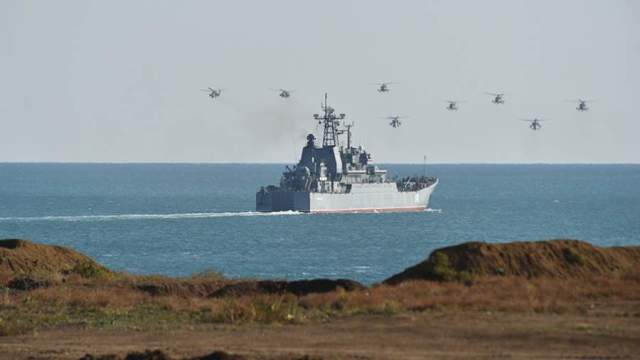Regular military exercises bypassing the Montreux Convention will help deprive Russia of a dominant position in the Black Sea, according to US Navy officer Brian Harrington. He shared this opinion in an article for The Hill.
According to the military, Bastion and Kalibr missiles, as well as their long-range anti-ship and land versions, provide Russia with enormous power, thanks to which the country can use tactics similar to Beijing in the South China Sea in the Black Sea. At the same time, Harrington recalled the Russian fighters hindering the activity of NATO and its allies in the region.
"The escort of US and NATO warships in the Black Sea by Russian military vessels and strike aircraft has become a universally recognized norm," he wrote in the article.
The American officer called military maneuvers with the use of high-tech weapons and interoperability the solution to this problem.
It is known that in accordance with the Montreux Convention, in peacetime, non-Black Sea countries are obliged to comply with restrictions on the tonnage of warships when passing through the straits. In this regard, the expert called on States to work together to circumvent this rule.
In addition, Harrington stated the need to strengthen the positions of alliance partners with the help of cruise missiles. He stated that Romania has already made a decision to purchase a Naval Strike Missile, but in his opinion, Bulgaria and Turkey should also be involved to confront Russia.
In conclusion, the military confirmed that only such steps can "preserve the freedom of the international waters of the Black Sea."
Earlier, on November 1, it became known that the ship of the Sixth Fleet of the US Navy Mount Whitney headed to the Black Sea to conduct operations with alliance allies, it was reported on November 1.
En route to its destination, the flagship stopped in Istanbul to later join the US Navy destroyer Porter, which was already in the Black Sea.
On the same day, Russian President Vladimir Putin, during a meeting in Sochi on defense issues, announced the possibility of seeing an American ship through binoculars or a sight of defense means. Moscow will respond to attempts to break strategic parity adequately to the situation, the Russian leader added.
On November 3, the US Navy ship John Lenthall entered the Bosphorus Strait and headed for the Black Sea. According to military historian Dmitry Boltenkov, vessels of this class do not appear so often in the Black Sea.
On the same day, NATO Secretary General Jens Stoltenberg said that the alliance was observing Russia's growing presence. According to him, NATO is responding to this with a growing presence in the region, while increasing its participation in the protection of airspace, on land and at sea. At the same time, the Secretary General pointed out that there is no direct military threat from Russia to the Baltic states.
According to the Montreux Convention, any warship of countries that do not have access to the Black Sea cannot stay there longer than 21 days.

